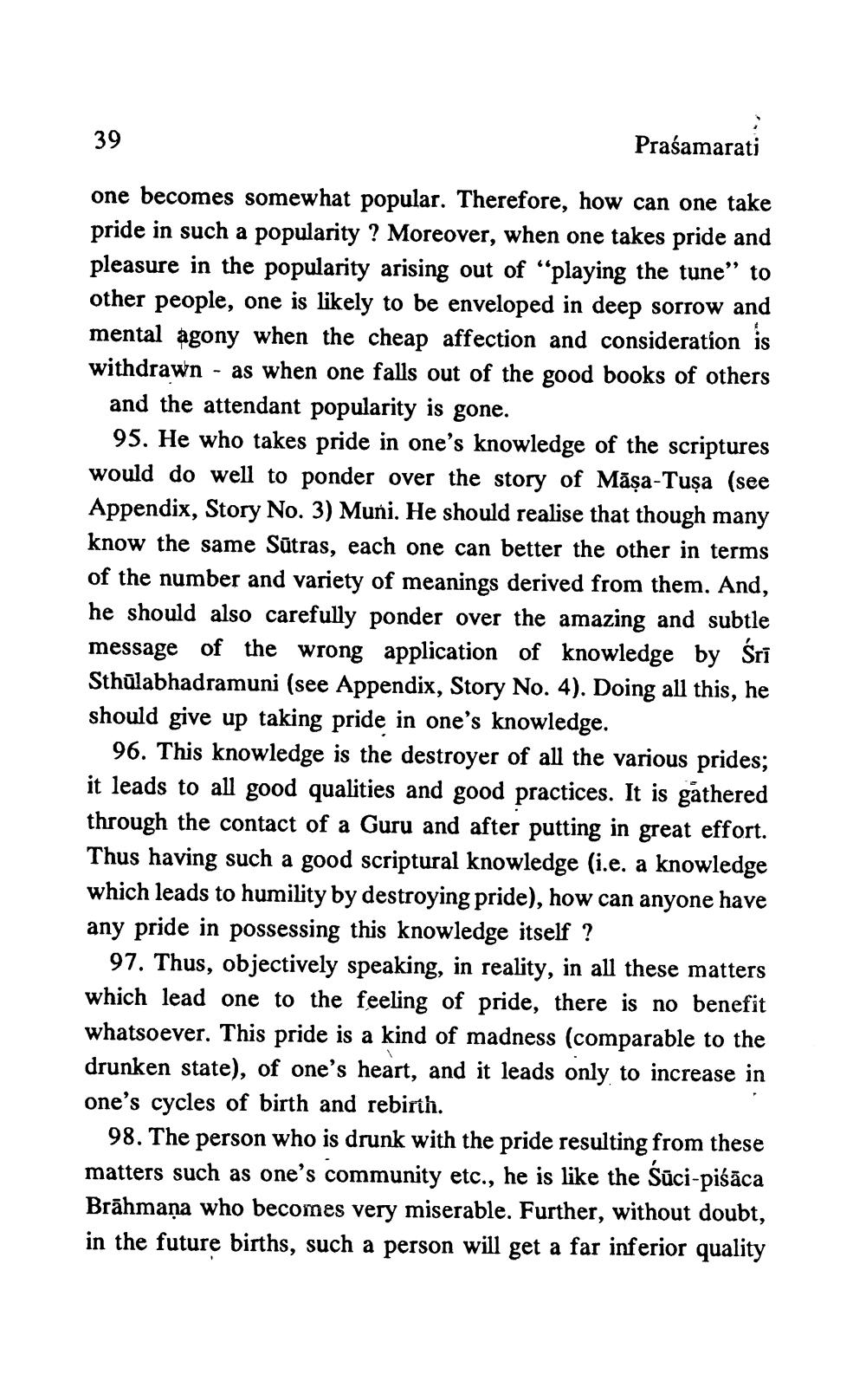________________
39
Praśamarati
one becomes somewhat popular. Therefore, how can one take pride in such a popularity ? Moreover, when one takes pride and pleasure in the popularity arising out of “playing the tune" to other people, one is likely to be enveloped in deep sorrow and mental agony when the cheap affection and consideration is withdrawn - as when one falls out of the good books of others
and the attendant popularity is gone.
95. He who takes pride in one's knowledge of the scriptures would do well to ponder over the story of Māşa-Tușa (see Appendix, Story No. 3) Muni. He should realise that though many know the same Sūtras, each one can better the other in terms of the number and variety of meanings derived from them. And, he should also carefully ponder over the amazing and subtle message of the wrong application of knowledge by Śrī Sthūlabhadramuni (see Appendix, Story No. 4). Doing all this, he should give up taking pride in one's knowledge.
96. This knowledge is the destroyer of all the various prides; it leads to all good qualities and good practices. It is gathered through the contact of a Guru and after putting in great effort. Thus having such a good scriptural knowledge (i.e. a knowledge which leads to humility by destroying pride), how can anyone have any pride in possessing this knowledge itself ?
97. Thus, objectively speaking, in reality, in all these matters which lead one to the feeling of pride, there is no benefit whatsoever. This pride is a kind of madness (comparable to the drunken state), of one's heart, and it leads only to increase in one's cycles of birth and rebirth.
98. The person who is drunk with the pride resulting from these matters such as one's community etc., he is like the Sūci-piśāca Brāhmaṇa who becomes very miserable. Further, without doubt, in the future births, such a person will get a far inferior quality




